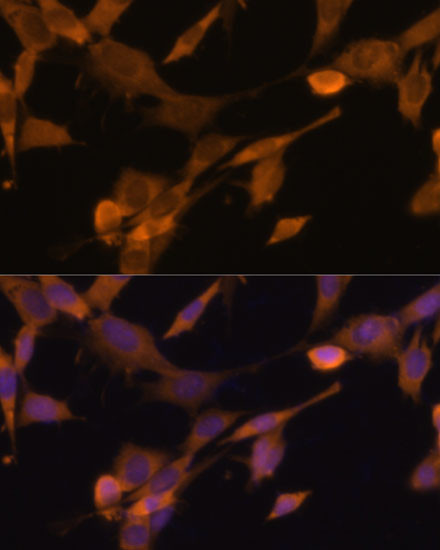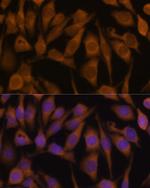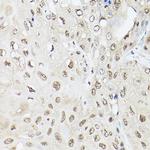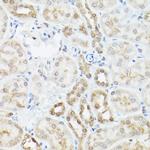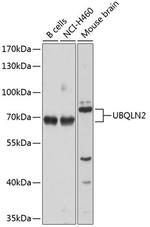Search Thermo Fisher Scientific
Product Details
PA5-97228
Species Reactivity
Host/Isotype
Class
Type
Immunogen
Conjugate
Form
Concentration
Purification
Storage buffer
Contains
Storage conditions
Shipping conditions
RRID
Product Specific Information
Immunogen sequence: MAENGESSGP PRPSRGPAAA QGSAAAPAEP KIIKVTVKTP KEKEEFAVPE NSSVQQFKEA ISKRFKSQTD QLVLIFAGKI LKDQDTLIQH GIHDGLTVHL VIKSQNRPQG QSTQPSNAAG TNTTSASTPR SNSTPISTNS NPFGLGSLGG; Positive Samples: B-cell, H460, Mouse brain; Cellular Location: Cytoplasm, Cytoplasmic vesicle, Membrane, Nucleus, autophagosome
Target Information
This gene encodes an ubiquitin-like protein (ubiquilin) that shares high degree of similarity with related products in yeast, rat and frog. Ubiquilins contain a N-terminal ubiquitin-like domain and a C-terminal ubiquitin-associated domain. They physically associate with both proteasomes and ubiquitin ligases; and thus, are thought to functionally link the ubiquitination machinery to the proteasome to affect in vivo protein degradation. This ubiquilin has also been shown to bind the ATPase domain of the Hsp70-like Stch protein.
For Research Use Only. Not for use in diagnostic procedures. Not for resale without express authorization.
References (0)
Bioinformatics
Protein Aliases: Chap1; DSK2 homolog; Nedd4 binding protein 4; PLIC-2; Protein linking IAP with cytoskeleton 2; Ubiquilin-2; Ubiquitin-like product Chap1/Dsk2; Ubiquitin-related protein
Gene Aliases: ALS15; CHAP1; DSK2; HRIHFB2157; N4BP4; Plic-2; PLIC2; UBQLN2
UniProt ID: (Human) Q9UHD9, (Mouse) Q9QZM0
Entrez Gene ID: (Human) 29978, (Mouse) 54609

Performance Guarantee
If an Invitrogen™ antibody doesn't perform as described on our website or datasheet,we'll replace the product at no cost to you, or provide you with a credit for a future purchase.*
Learn more
We're here to help
Get expert recommendations for common problems or connect directly with an on staff expert for technical assistance related to applications, equipment and general product use.
Contact tech support
